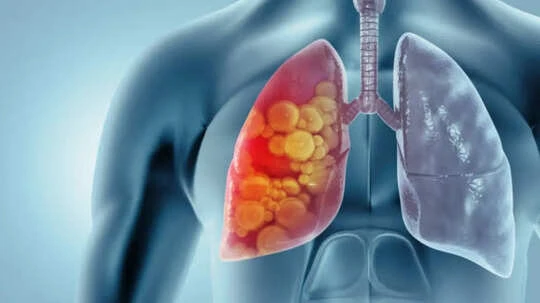Like every other morning for the past two weeks, Delhi woke up to yet another morning shrouded in smog, smoke, high AQI, and poisonous air.
The city’s average Air Quality Index has continuously been over 400, in the “severe” range, even though several pockets have crossed even 450. Doctors have warned that this severely polluted air inside your body is damaging your lungs.
“PM2.5 particles are so tiny they can bypass the lungs and enter the bloodstream, circulate through the body, and start systemic inflammation. This is what is concerning,” Dr Raj Kumar, senior consultant, Pulmonology, Indian Spinal Injuries Centre, told Times Now in an exclusive interview.
According to Dr Kumar, when AQI shoots above 400, every inhalation and breath you take becomes a delivery vehicle for microscopic pollutants such as particulate matter 2.5 (PM2.5), PM10, nitrogen dioxide, sulphur dioxide, and even heavy metals.
How does poor AQI affect your lungs?
The lungs are the first organs to suffer from poor air quality, as every breath you take introduces more tiny toxins directly into your respiratory system. “The air quality here in the city is reducing both the quality and quantity of life abruptly,” said Dr Kumar.
Inflammation and airway damage
According to Dr Kumar, inhaling polluted air makes the tiny particles irritate the inner lining of your airways, which slowly leads to inflammation. Over time, this ongoing irritation starts to thicken the walls of your airways, making it harder for you to breathe – thereby leading to conditions like bronchitis and asthma in the long run.
Reduced lung capacity
According to studies, long-term exposure to air pollution slows down your lung function – especially in vulnerable groups like children, adolescents, and older adults. Those exposed to poor air quality for years also develop chronic obstructive pulmonary disease – leading to a persistent cough, mucus buildup, and breathlessness.
Increased respiratory infections
Since polluted and toxic air weakens your natural defence system of the lungs, you become more susceptible to infections like pneumonia and influenza.
Triggers asthma
Asthma patients experience worsened symptoms during high pollution days. Even a short exposure to high AQI leads to acute asthma attacks, causing emergency visits and hospital admissions.
Does air toxicity affect only the lungs?
“Absolutely not,” Dr Naresh Trehan, Chairman and Managing Director of Medanta – The Medicity, said in a conversation with reporters. “These particles don’t stay in the lungs. They are absorbed into your bloodstream and travel fast to your kidneys, liver, heart, and even the brain,” he added.
Repeated exposure can also age your body faster due to oxidative stress and inflammation, which slow down the natural repair mechanisms.
How to take care of your lungs while living in high pollution?
Check AQI regularly
It is important to use reliable apps or websites to monitor daily air quality in your city so that you can avoid outdoor activities accordingly.
Limit going outdoors
Try to stay indoors during early mornings and late evenings when smog is heaviest.
Always wear a mask outdoors
Use N95 or N99 masks, which help filter fine particulate matter effectively.
Maintain indoor air quality
Avoid smoking, burning candles, or using incense indoors, and use exhaust fans in kitchens and bathrooms.
Do breathing exercises
Strengthen your lungs by practicing deep breathing or yoga-based pranayama to enhance lung capacity.
